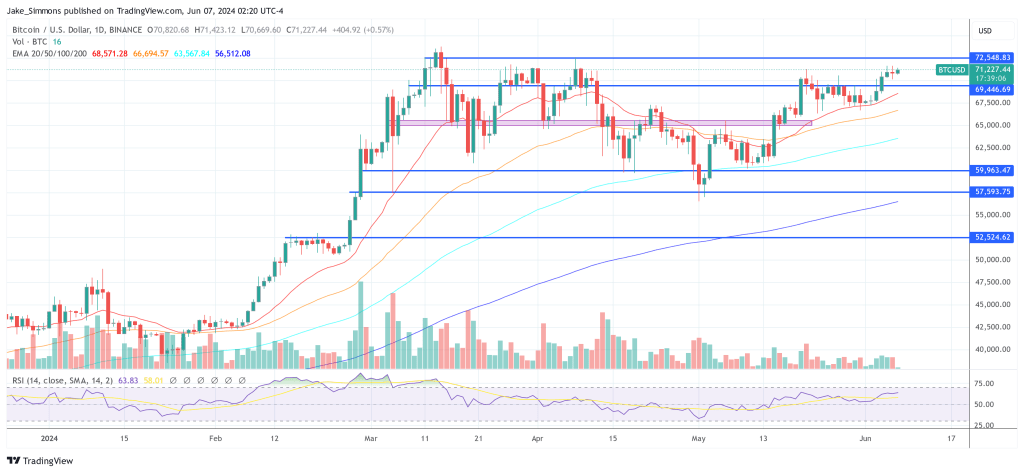In a striking revelation that challenges widely-held perceptions, Daniel Batten, a Bitcoin environmental impact analyst, disclosed that BTC mining was never officially banned in China. According to Batten’s research, despite widespread reports to the contrary, the so-called “ban” was actually a temporary suspension, and mining activities have largely resumed across the country.
Bitcoin Mining Was Never Banned In China
Batten’s report highlights that the hashrate within China, which is a measure of the computational power used in mining and processing Bitcoin, currently accounts for approximately 15% of the global total. This information stands in stark contrast to the dominant narrative that emerged in May 2021, when numerous major news outlets reported a comprehensive crackdown on cryptocurrency transactions and mining operations by the Chinese government.
Batten argues that the drop in network hashrate, which fell from 179.2 EH/s to 87.7 EH/s—a 51.1% reduction—was temporary and misinterpreted as a definitive ban. “If you are a disruptive student, and the principal sends you away from school, those ‘days absent from school’ don’t mean you’ve been expelled. It could mean you’ve merely been suspended,” Batten explained, drawing an analogy to clarify the situation in China.
Further investigative reporting supports Batten’s assertion. For instance, reports immediately following the “ban” indicated that many miners remained operational and unfazed. CNBC and NBC both reported on ongoing mining activities within China. Additionally, by December 2021, mining activity had rebounded to 19.1% of the global hashrate, as per Cambridge data, signaling a significant recovery.
“We’ve talked to multiple mining companies and mining distributers in China. The message is clear: if you’re small, useful and not using it to get money out of China, you’re welcome. This philosophy has made Bitcoin mining more distributed and more clean-energy based,” Batten added.
Innovative uses of Bitcoin mining in China have reportedly included harvesting wasted renewable energy and recycling heat, pointing to a more nuanced approach towards Bitcoin mining than previously understood. Batten also noted that local provincial governments often actively support Bitcoin mining, particularly when it involves small-scale operations that contribute to local energy solutions without attempting to circumvent capital controls.
“If you have 200-500 miners and want to do renewable-energy mining, you’re welcome. This is particularly in Inner Mongolia, the Texas of China, which has a lot of wasted renewable power they want to monetize,” Batten stated and added that “China let back the miners that served a specific purpose.”
Moreover, there’s no off-grid coal-based mining any more. “Mining is mostly hydro, much of which is sub-1MW,” Batten revealed. This is in line with China’s commitment to achieving carbon neutrality by 2060. Thus, the Bitcoin mining “ban” seems part of a broader effort to reduce the energy intensity of high-consumption industries.
According to Batten, Western media outlets have largely misreported these dynamics. This misunderstanding has perpetuated a false narrative about China’s stance on Bitcoin mining, which Batten aims to correct. Supporting this perspective, Jaran Mellerud from Hashlabs noted, “There are still several big miners operating in China. The local government lets them operate as they desperately need economic activity there.”
These findings not only challenge the mainstream media’s portrayal of China’s policies but also highlight a broader pattern of misinterpretation and sensationalism in reporting on Bitcoin mining’s legal and regulatory status worldwide.
At press time, BTC traded at $71,227, up 0.2% in the last 24 hours.

Featured image created with DALL·E, chart from TradingView.com














